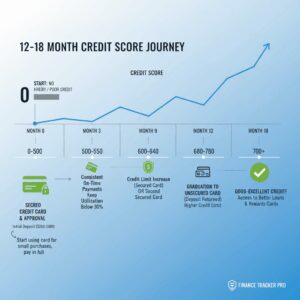Life Insurance for the Underdog: What No One Tells You About Getting Covered When You Don’t Fit the Mold

Life insurance sounds simple until you try to buy it — especially if your life doesn’t fit the picture-perfect boxes most insurers expect. The truth is, the system was built for predictability: stable jobs, two-car garages, W-2 incomes, and annual checkups. But what about everyone else?
What about the freelancers juggling invoices instead of paychecks? The single parents balancing bills and school drop-offs? The entrepreneurs who are still in the “scrappy” phase of their business?
These are the underdogs — the people building security from scratch. And ironically, they’re the ones who need life insurance most. Yet they’re often the ones who find it hardest to get it.
If that sounds like you, here’s what the insurance industry won’t say out loud — and what you can do about it.
1. The System Isn’t Built for You — But You Can Still Work It
Life insurance underwriting loves neat, predictable patterns. When you work a traditional 9-to-5, it’s easy for insurers to evaluate your risk — stable job, steady income, employer-sponsored health plan. You check all the boxes.
But when you freelance, own a small business, or take time away from the workforce, your life looks messy on paper. Irregular income? Red flag. Gaps in coverage? Risk factor. High credit utilization? Another ding.
Here’s the secret: it’s not personal. It’s statistical. Insurers price based on patterns, not people. But that doesn’t mean you’re powerless.
Start by documenting everything that shows consistency — tax returns, income history, client contracts, savings accounts. The more evidence you can show that you’re stable in your own way, the stronger your case becomes.
Because while the system wasn’t designed for you, it still respects data — even unconventional data.
2. Forget Perfection — Focus on Proof
Many people delay getting covered because they’re waiting for the “perfect” moment: when their income evens out, when they lose ten pounds, when they quit smoking, when their business finally turns a profit.
But perfection doesn’t protect anyone.
The truth is, the younger and healthier you are, the cheaper your policy will be — even if your life is still in flux. What matters most isn’t how polished your situation looks, but how clearly you can prove your long-term intent and stability.
Show that you’re responsible, even if your career path isn’t conventional. Insurers don’t need you to be perfect — they just need to trust your pattern.
3. Small Coverage Is Better Than No Coverage
Many underdogs get discouraged when they see the price tags for large life insurance policies. But here’s something most agents won’t emphasize: you don’t have to start big.
Even a modest policy — say $100,000 to $250,000 — can be a crucial safety net, especially if you have kids, business loans, or dependents who rely on your income.
You can always layer policies later as your situation improves. Think of it as building your safety net in chapters instead of trying to write the whole book at once.
The point isn’t to impress anyone — it’s to protect someone.
4. Honesty Beats Optimization
It’s tempting to tweak your health questionnaire answers or downplay your lifestyle risks to get a better premium. Don’t. If your policy ever needs to pay out, inaccuracies can jeopardize everything.
Be honest about your habits, your medical history, and even your financial gaps. Underwriters are humans, not robots — they value transparency. Many carriers are more flexible than you’d think, especially if you can show effort (quitting smoking, losing weight, managing debt).
Your honesty builds trust, and trust can be the real differentiator when your numbers don’t fit the norm.
5. The Underdog Advantage: Resilience
The irony of being an underdog is that you’ve already developed the very qualities life insurance is meant to represent: foresight, responsibility, and care for others. You’ve built a life on risk management — figuring things out when the odds weren’t in your favor.
That mindset is exactly what life insurance is supposed to honor. It’s not about checking corporate boxes; it’s about ensuring that your work, your dreams, and your people stay protected, no matter what.
Redefining What “Covered” Looks Like
If traditional life insurance was built for stability, then the modern version should be built for adaptability — and you’re living proof of that shift.
So, don’t wait to fit the mold. Create your own category. Talk to independent brokers who understand nontraditional careers. Ask about “no-medical” or hybrid policies designed for freelancers and entrepreneurs.
Because the goal isn’t to play by the system’s old rules — it’s to make sure that when life happens, the people you love don’t have to start over.
Coverage isn’t about perfection. It’s about protection — and the underdogs know that better than anyone.
Unlock Full Article
Watch a quick video to get instant access.










